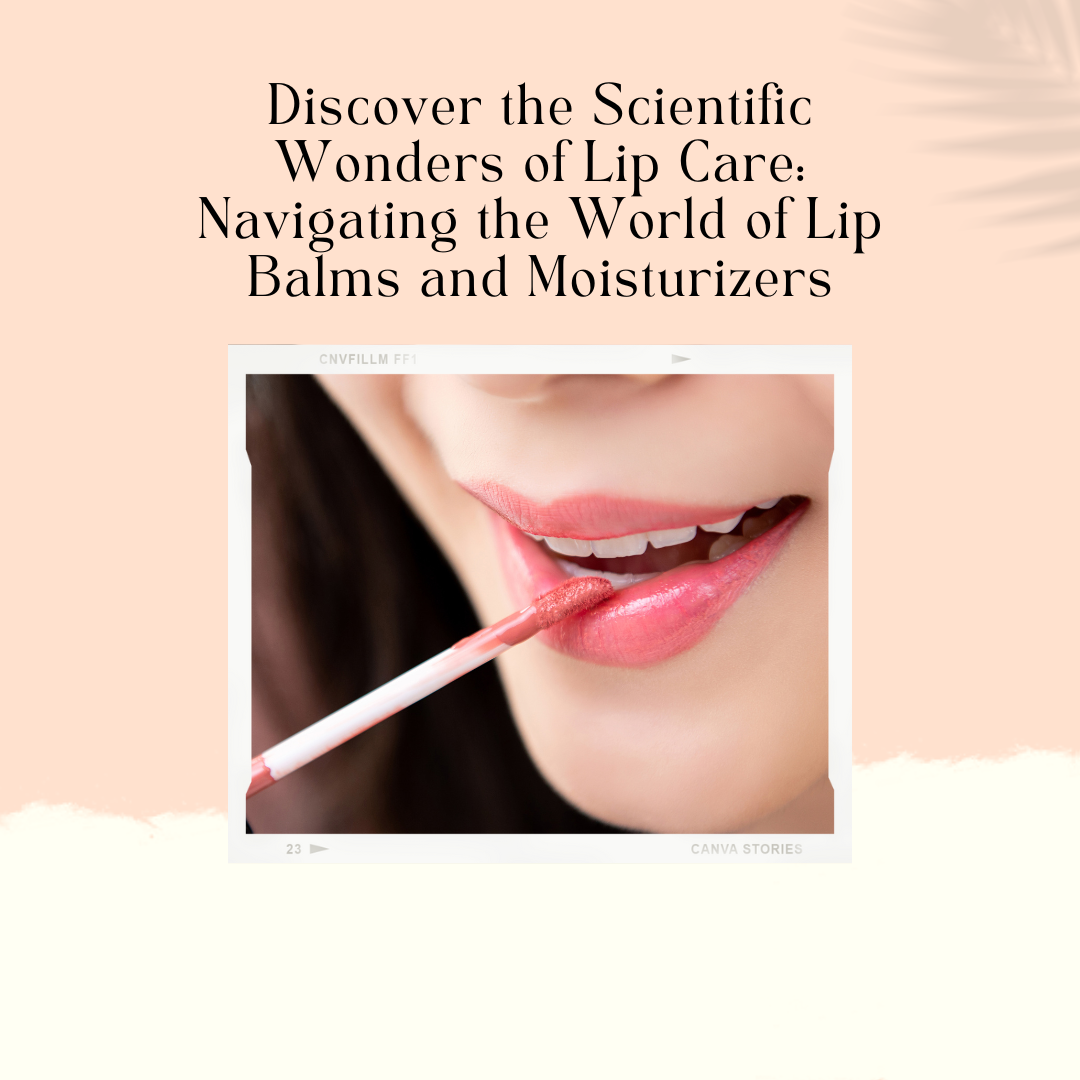
Discover the Scientific Wonders of Lip Care: Navigating the World of Lip Balms and Moisturizers
Introduction: Unveiling the Scientific World of Lip Care
Welcome to the intriguing world of lip care, where beauty intertwines with science. Lips, unlike other parts of the skin, demand a unique approach to care and nourishment. This exploration delves deep into the scientific aspects of lip care products. It's not just about aesthetic appeal; it's about understanding the intricate balance of hydration, protection, and nourishment that your lips crave. As we embark on this journey, we'll uncover the secrets behind the ingredients, the effectiveness of various products, and how to make informed choices for your lip care regimen.
The Anatomy of Lips: Understanding Their Unique Needs
The lips are more than just a focal point of beauty; they are a marvel of human anatomy. Structurally distinct from the rest of the skin, lips lack sebaceous glands, which are crucial for natural moisturization. This absence makes them more prone to dryness and chapping. The thinness of the lip skin also makes it vulnerable to environmental aggressors like UV rays, wind, and cold temperatures. These factors underscore the necessity for specialized lip care products that not only moisturize but also protect this delicate area.
Ingredients Decoded: The Science Behind Lip Balm Formulations
The effectiveness of a lip balm hinges on its ingredients. Common components include humectants like glycerin, which attract moisture to the skin, and emollients like shea butter, which soften and smooth. Then there are occlusives like beeswax or petroleum, forming a protective barrier to prevent moisture loss. Some balms incorporate nutrients like vitamins A, C, and E, known for their antioxidative properties. Recently, the trend has shifted towards natural and organic ingredients, believed to offer similar benefits without the potential side effects of synthetic additives.
The Role of Science in Hydrating and Protecting Lips
The science of lip hydration is fascinating. Lip balms and moisturizers function by creating an optimal environment for the skin to repair itself. Hydrating agents replenish lost moisture, while occlusives seal it in, preventing further dehydration. SPF inclusion has become crucial in lip care, as it protects the delicate skin from harmful UV rays, which can cause both immediate damage and long-term issues like premature aging and even skin cancer. Understanding these mechanisms is vital in selecting the right product for your lips.
Deciphering Research: What Studies Say About Lip Care Efficacy
Venturing into the realm of scientific research unveils a trove of information on lip care efficacy. Numerous studies highlight the importance of hydration and protection in lip health. For instance, research has demonstrated that ingredients like hyaluronic acid and ceramides, renowned for their moisture-binding properties, can significantly improve lip hydration and texture. Moreover, clinical trials underscore the protective benefits of SPF in lip balms, linking regular use to a reduced risk of photoaging and skin cancers in the lip area. These findings reinforce the value of selecting lip care products based on solid scientific evidence rather than mere trends or marketing claims.
Tailoring Lip Care to Weather and Environmental Conditions
Adapting your lip care routine to suit varying weather conditions is crucial for maintaining healthy lips. In arid or cold climates, a lip balm with higher emollient and occlusive content can provide enhanced protection against harsh elements. Conversely, in humid conditions, a lighter formula may suffice, focusing more on hydration than heavy protection. Additionally, high-altitude and sunny environments necessitate lip products with SPF to shield against intensified UV exposure. This tailored approach ensures that your lips receive the appropriate care they need, irrespective of the environmental challenges they face.
Smart Consumerism: Scientifically Informed Choices in Lip Care
Empowering yourself with scientific knowledge leads to smarter choices in lip care. When evaluating products, prioritize those with proven hydrating and protective ingredients. Be cautious of lip balms containing potential irritants like certain fragrances or salicylic acid, which can exacerbate dryness or sensitivity. Instead, opt for formulations rich in nourishing components like natural oils, butter, and antioxidants. Remember, the best lip care product is one that aligns with both the scientific understanding of lip health and your personal needs and preferences.
Conclusion and Key Takeaways: Empowering Your Lip Care Choices
As we conclude our exploration of the science behind lip care products, it's clear that understanding the ingredients, research, and environmental considerations is pivotal for effective lip care. Here are five key takeaways for those seeking a quick summary:
- Lips have unique anatomical needs, lacking natural moisturizing glands, making them prone to dryness.
- The efficacy of a lip balm lies in its blend of hydrating, moisturizing, and protective ingredients.
- Scientific research supports the benefits of ingredients like hyaluronic acid and ceramides, as well as the necessity of SPF in lip care.
- Tailor your lip care routine to suit different environmental conditions for optimal lip health.
- Make informed choices by selecting lip care products based on scientific evidence and personal lip care needs.
By integrating these insights into your daily routine, you can ensure that your lips remain healthy, hydrated, and protected, regardless of the challenges they face.

